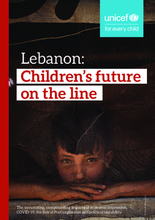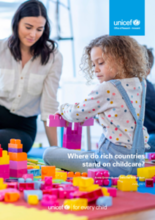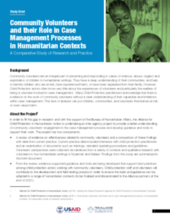Demographic Data
|
Sources: World Bank, UNDP, UNAIDS, DHS 2013 |
Displaying 2471 - 2480 of 14391
la Comisión Interamericana presenta la guía ¿Cómo hacer más
efectiva la protección a la unidad familiar y reunificar a la familia en los procedimientos migratorios y de protección en contexto de pandemia? en la que
se analizan los estándares interamericanos aplicables a la luz de las obligaciones
internacionales de los Estados y propone recomendaciones para garantizar la unidad
familiar y la reunificación familiar así como prevenir los riesgos de separación y minimizar los impactos en los casos de separación familiar. Asimismo, la implementación
de las garantías de la reunificación familiar requiere muchas veces de una estrategia idónea de acceso a mecanismos de regularización documental, así como de condiciones seguras de viaje y movilidad a través de las fronteras nacionales. Esto es especialmente benéfico para familias que se han visto separadas de manera forzada o por
razones asociadas a la movilidad humana.
he Inter-American Commission on Human Rights (IACHR) has issued, in collaboration with the UN Refugee Agency (UNHCR), a practical guide on how to protect family unity and reunification more effectively in human mobility and mixed movement contexts during the ongoing COVID-19 pandemic. This publication is part of a series of guides issued by the IACHR to address the impact of the pandemic on human rights. The guide makes recommendations to States, so they may protect family unity, prevent separation, and take any necessary measures to ensure the reunification of families who may have been separated in contexts associated with human mobility.
The assessment of COVID-19 effect on the Wellbeing of Children in Uganda was conducted between June and August, 2020 by AfriChild Centre, Makerere University. The study took a retrospective approach with a focus on the three months of the COVID-19 lock down (AprilJune 2020) to counter contradictions that could arise from a longer study period in the face of changing dynamics of COVID-19.
This report on the State of Uganda’s Fathers is the first of its kind. The first State of the World’s Fathers Report was published in 2015. This report was monumental in that it highlighted information about fathers and men’s caregiving globally.
This report presents the findings of the COVID 4P Log Project, which sought to better understand the changing demands on the policies and practices designed to support children's wellbeing in response to the COVID-19 pandemic across different cultures and contexts, in 22 countries and five continents.
This rapid assessment from UNICEF explores the devastating, compounding impacts of economic depression, COVID-19, the Beirut Port explosions and political instability on children in Lebanon.
This report published by UNICEF’s Office of Research – Innocenti, ranks countries across the Organisation for Economic Co-operation and Development (OECD) and the European Union (EU) based on their national childcare and parental leave policies.
This article identifies risks and vulnerabilities that child monks can face, including sexual abuse. It reflects on how aspects of entrusting young children to live as child monks do not necessarily fit with principles articulated in the Convention on the Rights of the Child (UNGA, 1989) and the United Nations Guidelines for the Alternative Care of Children (UNGA, 2009).
This is a 3-page document targeting donors, policy makers, and UN agencies regarding the roles of volunteers and how decision makers can support their roles
The Alliance for Child Protection in Humanitarian Action undertook an inter-agency project to provide a better understanding of community volunteers’ engagement in the case management process and develop guidance and tools to support their work.










